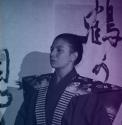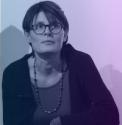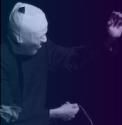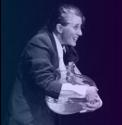To speak, to think: to conceive in feminine
When I read the introduction of “Stones of Water” by Julia Varley, written in feminine I was shocked, this book suddenly opened for me another possible reality: a world where we, women, are considered and named in the evocative words. The text is also an invitation for men to feel themselves included in these feminine words. An excellent politic action, to make us visible – I thought.
Nevertheless, after ten years, I am writing a research work and as a deconstruction exercise, I am writing it in feminine. Then, I realize that addressing ourselves in feminine, it´s much more than a political action that positions us in the world.
This action changes our conception of the universe, of life and therefore, of theatre. To evoke us, makes us to exist for ourselves. And to name us in what we do, makes us to conceive ourselves as participants not as spectators. When I feel as a participant, my relationship with theatre and all its elements changes: a theatre made by women, who think of themselves as women and who consider other women as their interlocutors is completely different from the theatre we know and saw, built from patriarchy. In that sense, some of the aspects or concepts that change when they are seen from a feminine perspective are energy, relationship with divinity (gods and goddesses), relationship with other actresses, relationship with the public (thought as women spectators), relationship with the time and cycles.
But the changing aspect that caught my attention was the way we relate to each other: men, they compete, and women? We, women, are building or recovering better ways of work and coexistence. We are creating on principles that are our own: care, tolerance, patience, tenderness. Principles that were lost in the patriarchal theatre heritage. Time to reflect and here I am, in my fifties, questioning the way I do theatre, rethinking my life.
Eugenia Cano
Guanajuato, Gto. 18 February 2021





